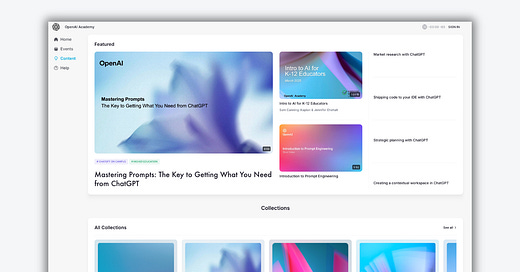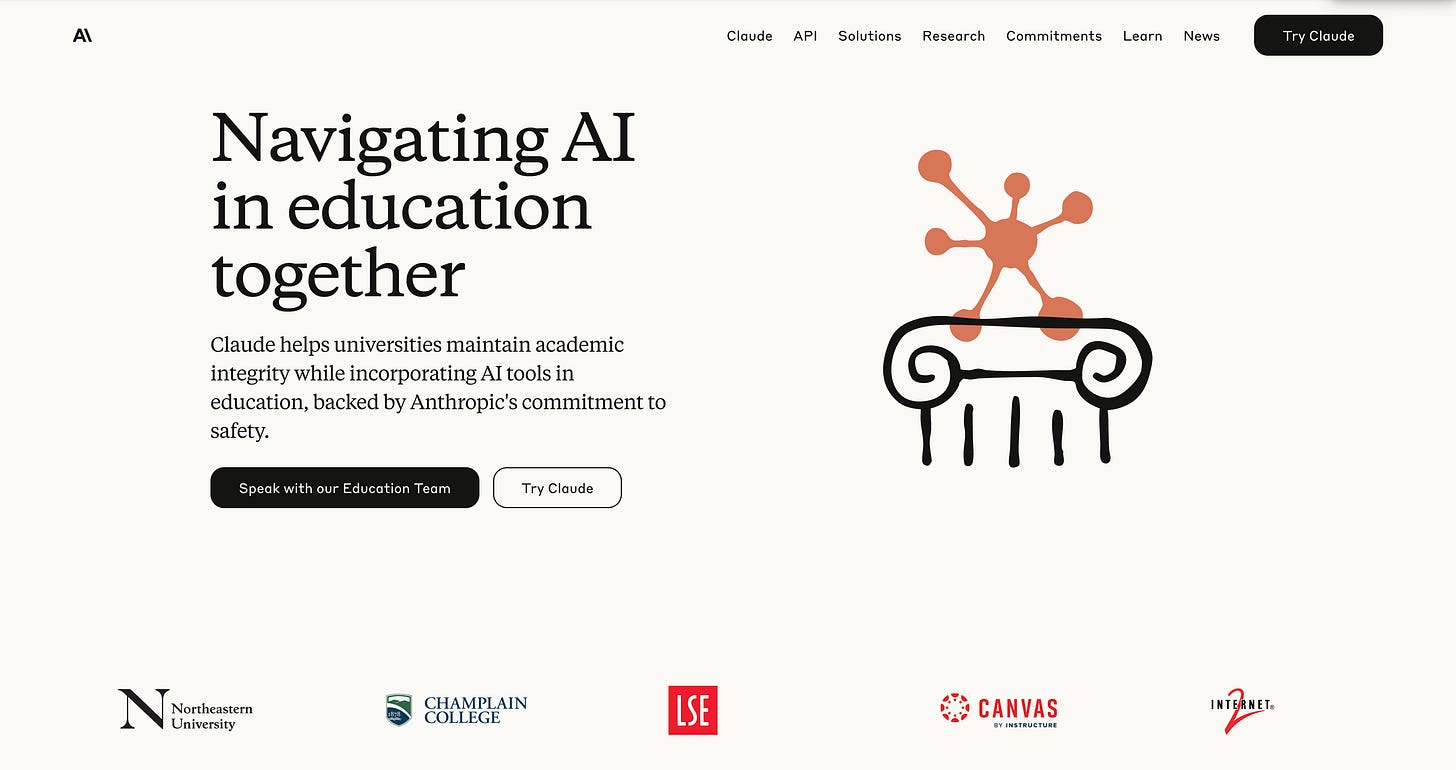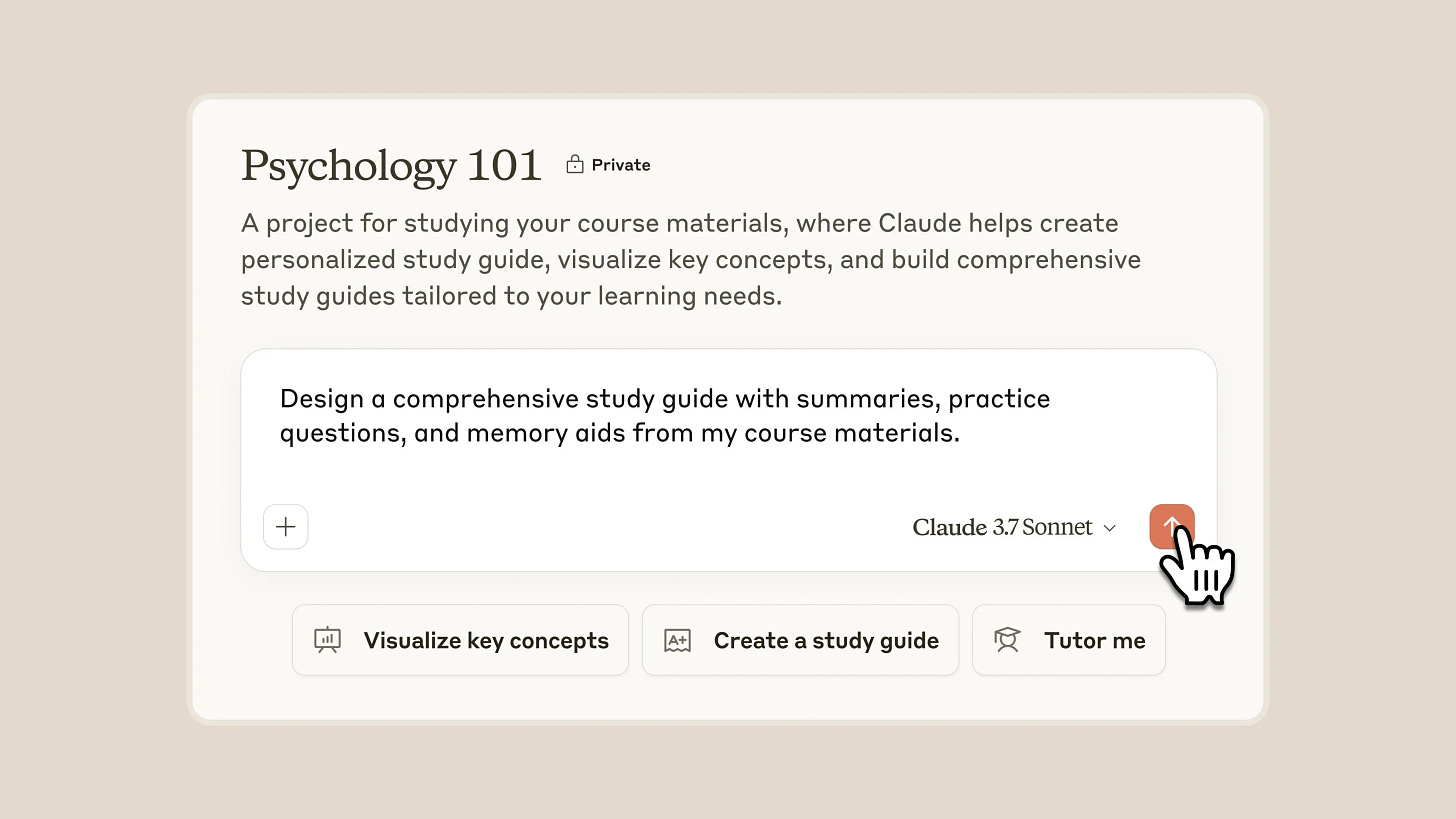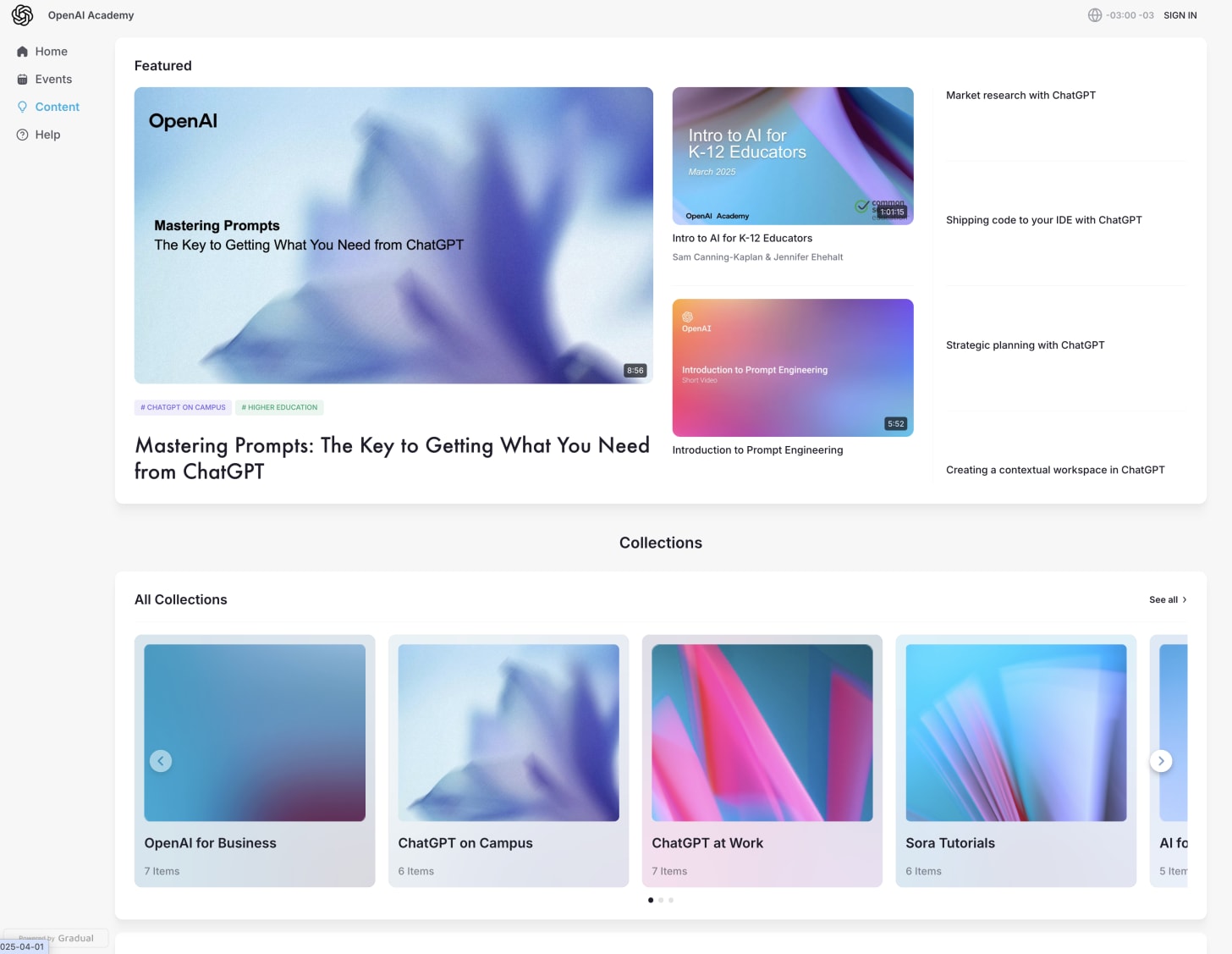OpenAI and Anthropic are battling for the future of AI education
The most successful AI users will be critical thinkers who understand how to guide AI through learning-centered dialogues.
→ Want my proven prompts? Get lifetime access to my personal Prompt Vault – a constantly updated Notion database with the exact prompts I use for writing, research, and content creation.
Tech's biggest AI players are no longer just competing for your prompts — they're racing to shape how the next generation learns with AI. Both OpenAI and Anthropic have launched major education initiatives recently that will influence how millions interact with AI tools.
Here's what they're building and why it matters to you.
The education battleground
Both Anthropic and OpenAI are making significant strides in the education sector by launching new AI-focused initiatives. These are deep strategic investments in how AI will be used in classrooms, universities, and professional development worldwide.
Anthropic has introduced "Claude for Education," tailored specifically for higher education with an emphasis on secure, reliable AI access and a "Learning mode" designed to promote critical thinking. Meanwhile, OpenAI has launched "OpenAI Academy," a broader initiative democratizing AI education for educators, students, job seekers, and small business owners.
As an AI writer, researcher, or educator, these platforms offer new resources to enhance your skills and workflow — while signaling important shifts in how AI companies are positioning themselves for the future.
Anthropic's Claude for Education
Anthropic has designed Claude for Education specifically for higher education institutions, providing "secure, reliable AI access" for entire academic communities. Unlike general consumer AI, this version is tailored to academic contexts.
The standout feature is Claude's new "Learning mode," which takes a fundamentally different approach to student interaction. Rather than immediately providing answers, Learning mode uses Socratic questioning, asking "How would you approach this problem?" to guide students through their own reasoning process. This design encourages deeper understanding rather than mere answer generation.
Early adopters include prestigious institutions like Northeastern University, London School of Economics, and Champlain College, which are providing campus-wide access to Claude.
OpenAI's Academy
OpenAI has taken a broader approach with its Academy, designed as a "training space for anyone with a question about AI" and aiming to make AI education "free, flexible and widely accessible."
The Academy offers more diverse resources: tutorials, real-life case studies, hands-on exercises, and self-paced professional development modules — all free and oriented toward practical application.
OpenAI has created specific tracks including "AI for K-12 Educators," "ChatGPT on Campus" for higher education, and "ChatGPT at Work" covering productivity and ethical considerations. This reflects a comprehensive strategy to reach users across different contexts and experience levels.
For newsletter creators and content professionals, the "ChatGPT at Work" track offers directly applicable resources for enhancing your productivity and content quality. The focus on practical, real-world learning makes this a valuable resource hub for improving your AI writing skills.






